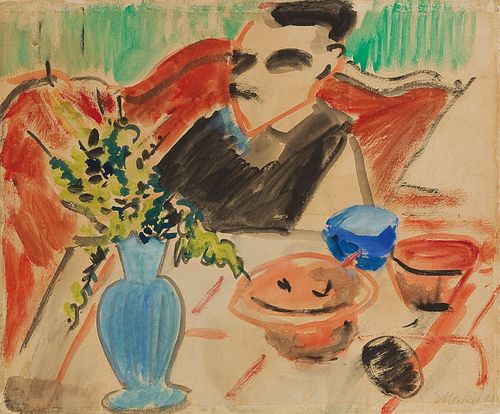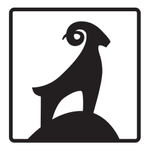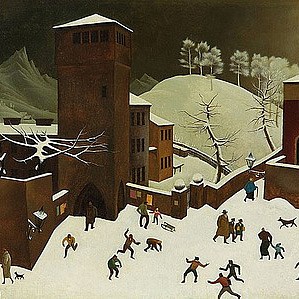ERICH HECKEL (Döbeln 1883 - 1970 Radolfzell) Wilhelm Simon Guttmann
Lot 137
Categories
Estimate:
EUR€15,000 - EUR€30,000
$15,789.47 - $31,578.95
Absentee vs Live bid
Two ways to bid:
- Leave a max absentee bid and the platform will bid on your behalf up to your maximum bid during the live auction.
- Bid live during the auction and your bids will be submitted real-time to the auctioneer.
Bid Increments
| Price | Bid Increment |
|---|---|
| EUR€0 | EUR€10 |
| EUR€100 | EUR€50 |
| EUR€700 | EUR€100 |
| EUR€1,000 | EUR€200 |
| EUR€3,000 | EUR€300 |
| EUR€3,600 | EUR€400 |
| EUR€4,000 | EUR€500 |
| EUR€7,000 | EUR€1,000 |
| EUR€16,000 | EUR€2,000 |
| EUR€30,000 | EUR€3,000 |
| EUR€36,000 | EUR€4,000 |
| EUR€40,000 | EUR€5,000 |
About Auction
By Widder Auctions
May 19, 2022
Set Reminder
2022-05-19 11:00:00
2022-05-19 11:00:00
America/New_York
Bidsquare
Bidsquare : Masterpieces
https://www.bidsquare.com/auctions/widder-auctions/masterpieces-9287
Masterpieces of classical modernism by Austrian and international artists coming up for auction in Vienna on May 19th Widder Auctions office@widderauktionen.com
Masterpieces of classical modernism by Austrian and international artists coming up for auction in Vienna on May 19th Widder Auctions office@widderauktionen.com
- Lot Description
ERICH HECKEL*
(Döbeln 1883 - 1970 Radolfzell)
Wilhelm Simon Guttmann
watercolor/vellum, 36,7 x 43,6 cm
signed E Heckel and dated 1911
verso painting "Tulpen", watercolor and pencil/vellum, again signed and dated Erich Heckel 21
depicted in gallery Nierendorf, German Expressionists, Cat. No. 20, Berlin 1988 and gallery Nierendorf, selected works from 4 decades, cat. N. 7, Berlin 1992
exhibited at State Hermitage Museum St. Petersburg: Gegenlicht 2013-2014 and depicted in exhibition catalogue p.58, no.18
the work is registered in the estate archive
Provenance: Bassenge Berlin 1982, Galerie Nierendorf Berlin, Karl and Faber Munich 1989, Bassenge Berlin 2008, private collection
ESTIMATE °€ 15.000 - 30.000
German painter and graphic artist of the 20th century. Main representative of Expressionism, shaped the avant-garde of the 1910s. First studied architecture in Dresden, as a painter self-taught. 1905 founded the artist group die Brücke together with Ernst Ludwig Kirchner, Karl Schmidt-Rottluff and Fritz Bleyl. Other members Max Pechstein, Emil Nolde and later Otto Mueller. 1907 to 1910 with Karl Schmidt-Rottluff in Dangast on the North Sea, in Dresden studio community with Ernst Ludwig Kirchner. 1911 in Prerow on the Baltic Sea, at the same time as Marianne von Werefkin and Alexej Jawlensky from the Neue Künstlervereinigung Munich. Then to Berlin, friendships with Lyonel Feininger, Franz Marc and August Macke. 1913 summer at the Flensburg Fjord, 1914 with Heinrich Nauen in Dilborn on the Lower Rhine. During World War I as a medic in Flanders, especially in Ostend, meeting with Max Beckmann and James Ensor. In the 1920s in the circle of the poets Ernst Morwitz and Stefan George. In 1937 his works were classified by the Nazis as degenerate art, many works were destroyed. Early influences of Art Nouveau and Post-Impressionism, including Vincent van Gogh, Paul Gauguin, Paul Cezanne and Edvard Munch. Development in the direction of a color-intensive Expressionism. Created mainly portraits, nudes and genre scenes, also landscapes and cityscapes. The main theme was the human being, as in the portrait of the Expressionist literary figure Wilhem Simon Guttmann from the red sofa. Kirchner and Schmidt-Rottluff also portrayed Guttmann.
Heckel painted the portrait of William Simon Guttmann when the latter moved to Berlin. Guttmann was an Austrian writer and poet and had just launched the literature magazine "Neue Weltbühne" ("New World Stage") at that time. Guttmann's friends were painters like Heckel, Ernst Ludwig Kirchner and Karl Schmidt-Rottluff, that also painted portraits of him (See, for example Kirchner woodcut Dube 193 and Schmidt-Rottluff oil painting from 1913, Grohmann 1956, p. 257). Guttmann developed gradually from literature, through the politics of the German revolutionary period of 1918/19, to his influential career in photography in Berlin and, eventually, in London.
PLEASE NOTE:
The purchase price consists of the highest bid plus the buyer's premium, sales tax and, if applicable, the fee of artists resale rights. In the case of normal taxation (marked ° in the catalog), a premium of 24% is added to the highest bid. The mandatory sales tax of 13% is added to the sum of the highest bid and the buyer's premium. The buyer's premium amounts to 28% in case of differential taxation. The sales tax is included in the differential taxation. - Shipping Info
-
Shipping
We will send you the invoice shortly after the auction. As soon as we have recieved the amount, the art can be picked up at Johannesgasse 9-13, 1010 Vienna. Please note that the buyer is responsible for pick-up and shipping of the lot.
Should you wish to ship your items, please contact: Mailboxes Email: oper@mbe-co.at Tel: 01 5128855
Please note that storage fees may apply, should the pieces not be picked up within 14 days after invoicing for domestic and 28 days for international transportation.
Our team will be happy to assist you with any further information at office@widderauktionen.com or at 0043 676 555 66 10.
-
- Buyer's Premium



 EUR
EUR CAD
CAD AUD
AUD GBP
GBP MXN
MXN HKD
HKD CNY
CNY MYR
MYR SEK
SEK SGD
SGD CHF
CHF THB
THB














